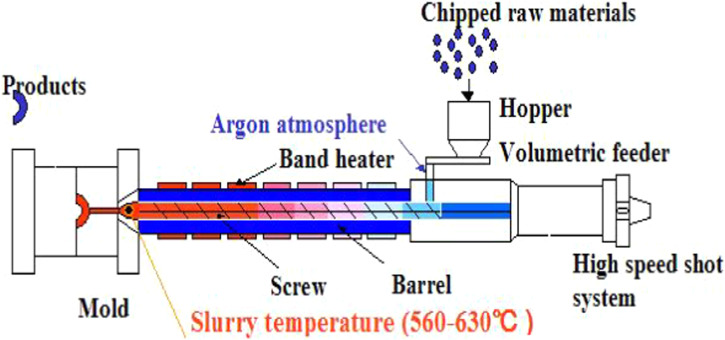Aluminum alloy die casting is a manufacturing process that involves injecting molten aluminum into a mold cavity under high pressure. The resulting part, known as a die casting, is a highly precise and accurate reproduction of the mold cavity. Aluminum alloy die casting is used in a variety of industries, including automotive, aerospace, electronics, and telecommunications.
The advantages of aluminum alloy die casting are numerous. The process is highly efficient, allowing for the production of large quantities of parts in a short amount of time. The resulting parts are also very strong and durable, with excellent mechanical properties. Additionally, aluminum alloy die casting is cost-effective, making it a popular choice among manufacturers.
The process of aluminum alloy die casting begins with the creation of a mold cavity. This is typically done using a metal die, which is a precision tool that is designed to create the desired shape and size of the final part. The die is typically made from steel or another hard, durable material that can withstand the high pressures and temperatures involved in the die casting process.
Once the mold cavity is created, molten aluminum is injected into the cavity under high pressure. This pressure helps to ensure that the aluminum fills the mold completely and evenly. Once the mold cavity is filled, the aluminum is allowed to cool and solidify. The resulting part is removed from the mold, and any excess material is removed using various finishing techniques, such as trimming or sandblasting.
One of the key advantages of aluminum alloy die casting is the ability to create highly complex parts with a high degree of precision and accuracy. This is because the molding process allows for the creation of intricate shapes and patterns that would be difficult or impossible to achieve using other manufacturing processes.
Another advantage of aluminum alloy die casting is the ability to create parts with a high degree of consistency and repeatability. This is because the molding process allows for precise control over the volume and distribution of the aluminum, resulting in parts that are nearly identical in size, shape, and quality.

Despite its many advantages, aluminum alloy die casting does have some limitations. For example, the process is not well-suited for the manufacture of very large parts, as the high pressure and temperature involved can cause the aluminum to become distorted or warped. Additionally, the process may not be suitable for certain applications that require very high levels of precision, as there may be some degree of variation or deviation from the desired specifications.
Overall, aluminum alloy die casting is a highly effective and efficient manufacturing process that is used in a wide range of industries. Its ability to create highly precise, consistent, and durable parts makes it a popular choice among manufacturers. However, it is important to consider the limitations of the process and determine whether it is the right choice for a particular application.
-

- Εξαρτήματα χύτευσης OEM για πλαίσιο καθισμάτων αυτοκινήτου
-

- Factory Custom China Bmx Cycles Road Sport Kids Bicycle 12 16 18 20 Inches Cycle Mtb For Kids 6-10 Years
-

- Μέρη και εξαρτήματα χύτευσης από κράμα μαγνησίου για ηλεκτρονικά ποδήλατα
-

- Εξατομικευμένα εξαρτήματα και εξαρτήματα χύτευσης
-

- Εξαιρετικά ελαφρύ πιρούνι ανάρτησης για MTB
-

- Ποδήλατα για παιδιά Παιδικά Ποδήλατα για Παιδιά 3-16 ετών /OEM Baby Children Cycle Kids Mountain Bicycles 2022

 0086-750-5616188
0086-750-5616188 +86 13392089688
+86 13392089688 sales@zhongmei-tech.com
sales@zhongmei-tech.com







